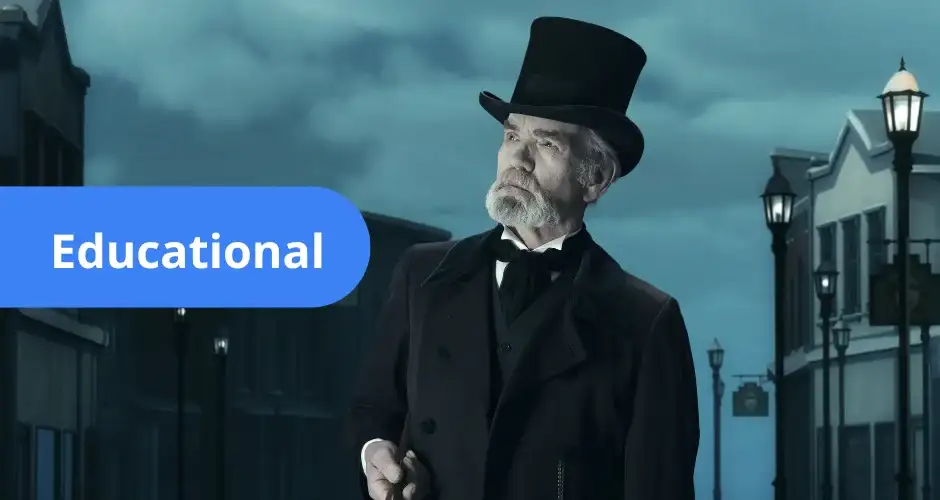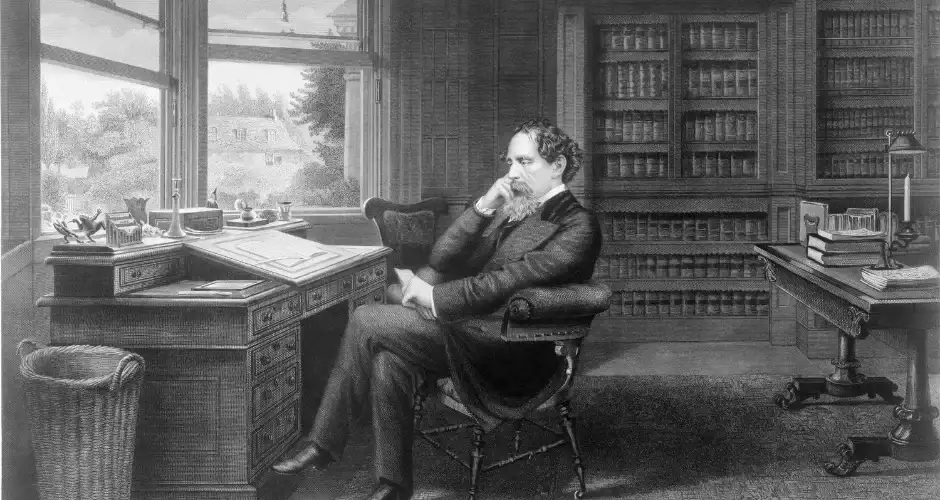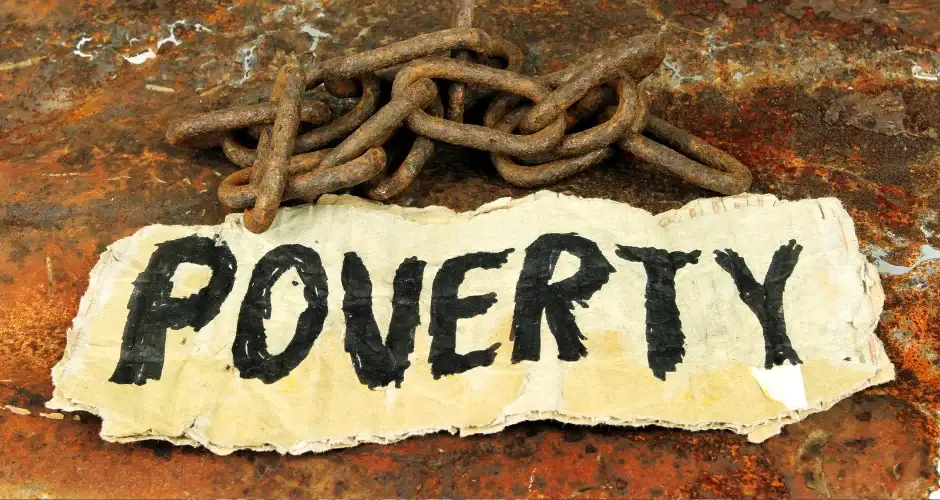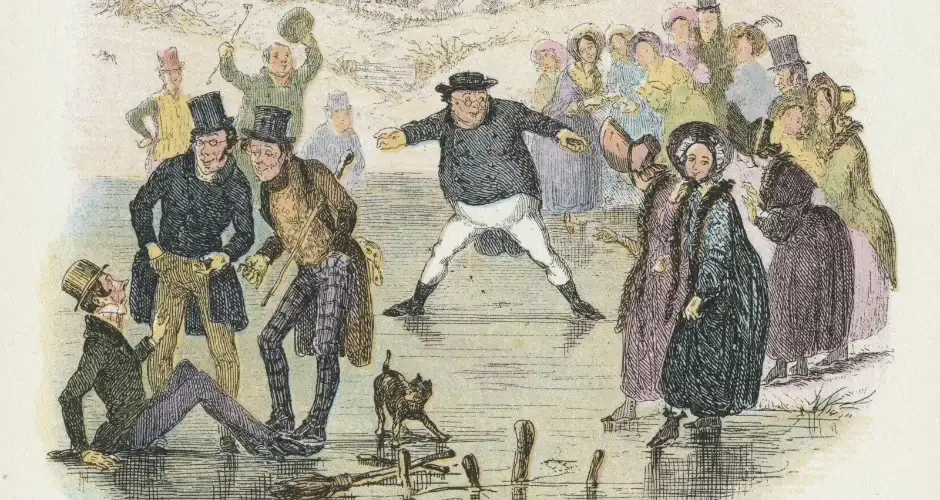GUEST POST
GCSE English Literature Context: ‘A Christmas Carol’ By Charles Dickens

Understanding the context of Charles Dickens’ A Christmas Carol is essential for GCSE English Literature students.
From poverty in Victorian England to the influence of religion and social reform, Dickens used this novella to expose inequality and inspire change.
If you’re preparing for exams, studying the background can help you develop stronger analysis in essays. Working with a GCSE English tutor or accessing online tuition can give you tailored support to boost your confidence.
Origin Of Scrooge’s Name
‘A Christmas Carol’ is a short novella about a mean and bitter character called Ebenezer Scrooge. The name “Ebenezer” comes from the Hebrew phrase "Eben ha-Ezer," meaning "stone of help". In the Book of Samuel, the prophet Samuel sets up a stone and names it Ebenezer to commemorate God's help in a victory against the Philistines.
This stone served as a reminder of God's power and protection. The name “Scrooge” could be a play on words. The word "scrouge" was in use in the early 1800s and meant to crowd or squeeze.
Inspiration For ‘A Christmas Carol’
Dickens was inspired by a 1843 parliamentary report which exposed the harsh conditions faced by children. Dickens wanted to bring about genuine changes to society, and he was “stricken down” by what he read. He wanted to write something that would grab people’s attention and to strike “a sledgehammer blow” on behalf of poor children.
In October 1843, Dickens travelled to Manchester to give a speech in support of the Athenaeum, an educational charity for working men and women. Fanny, his older sister, lived in Manchester with her husband, Henry Burnett, and their two sons, Harry and Charles.
Dickens visited them and was shocked by the difficulties facing his disabled nephew Harry. It made him consider the realities of what life was like for poor, disabled children and that their lives were even harder than those of their able-bodied siblings. Eventually, Harry would become the inspiration for Tiny Tim.

Difficulties Publishing The Novella
It took Dickens six weeks to write ‘A Christmas Carol’. He finished the novella on 2 December 1843, but he was worried about his finances. His bank account had become overdrawn and his publishers, Chapman and Hall, thought the novella was a strange idea.
His current novel, ‘Martin Chuzzlewit’, had lost readers during its serialisation, and as a result, the publishers were losing confidence in Dickens. His publishers, therefore, refused to pay the full costs for publishing ‘A Christmas Carol’ and Dickens had to pay the rest himself. Fortunately, ‘A Christmas Carol’ was an instant success, and in 1844, Charles Dickens moved to a new publishing house: Bradbury and Evans.
Charles Dickens Experienced Poverty
The Dickens family was part of middle-class England, but they experienced poverty through bad fortune. In 1824, when Charles was only twelve, his father was made bankrupt and imprisoned in a debtors’ prison. As a result, Charles had to work in a boot blacking factory to help support his family. However, between 1824-1827, Charles’s father inherited a large amount of money and he was able to send Charles to private school.
Poverty In England
In Victorian society poverty was a huge problem, particularly in large cities like London which had become overcrowded due to people moving from rural areas to cities in search of work - this was a result of the Industrial Revolution which had started in 1780, when factory owners in Britain had started to use coal to fuel their steam engines to power machines in large factories. The Industrial Revolution made factory owners very wealthy, and they would often employ low-paid, working-class people to work in their factories.
Living Conditions
Between 1800 and 1900, London’s population grew from approximately 1 million people to 6 million due to the Industrial Revolution. Many of these migrants ended up living in overcrowded slums, which often lacked proper sanitation - this led to a dramatic increase in hunger, disease and crime. Children very often suffered the most and migrants were commonly exploited by rich factory owners who prioritised profits over the welfare of their workers.

Thomas Malthus
In 1798, the economist Thomas Malthus produced a theory that human population would always outstrip food supplies. As a result, overpopulation would lead to the poor dying from a lack of food. Mathus thought that poverty was the inevitable consequence of the poor having too many children. Also, Malthus believed that families should have fewer children and have those children later in life.
However, Dickens believed that Malthus was wrong and that there was more than enough food to go around if the rich were more generous. Dickens held the view that the rich hoarded the bulk of the country's resources at the expense of the poor.
The Poor Law
In 1834, a new Poor Law was introduced to reduce the amount of help available to the poor in society. The law meant that all unemployed people had to enter a workhouse in order to receive food and shelter. However, workhouses in reality were very harsh environments, where people had to work extremely hard, and families would often be split up.
Workhouses were feared and conditions were made deliberately miserable in order to discourage the poor from relying on help. In ‘A Christmas Carol’, Dickens uses the novella as a means to attack society’s uncaring attitude towards the poor - the character of Scrooge embodies all of the negative traits that appalled Dickens.
Religion
In Victorian society, Christianity had a very strong influence on everyday life and people believed that to be a good Christian, they had to live by a strict moral code, including regularly attending church and avoiding alcohol. However, Dickens believed that to be a good Christian, people ought to do good deeds for the poor and donate money to help others less fortunate in society.
A typical Sunday in Victorian England would involve people going to church and resting, which was known as Sabbatarianism. Dickens disagreed with this practice and felt that poorer people were denied any enjoyment on their one day off from work each week. Also, going to church on Sundays meant that poorer people couldn’t get a hot meal on Sundays, as many poorer people didn’t have ovens at home, and bakers (who cooked hot food) were closed on Sundays.

Christmas
At the beginning of the 19th century, Christmas was rarely celebrated, but by the end of the century, it had become the most important celebration of the year. Things that we take for granted now, such as cards, crackers, gifts and trees, became increasingly important. Christmas parties would become popular and would feature food, dancing and laughter.
Exploring the context of A Christmas Carol not only deepens your knowledge of Dickens’ world but also strengthens your exam responses.
By linking historical events, social issues and Dickens’ personal experiences to the novella, you’ll be able to write high-level answers for GCSE English Literature.
If you’d like more guidance, a GCSE English Literature tutor can help you practise essay skills, build critical interpretations, and prepare effectively. Online tuition makes it easy to fit expert support around your schedule so you feel confident on exam day.
Students
Tutors

Nick C
Tutor
English & Maths tutor with over 24 years experience
Looking for a tutor?
Sherpa has hundreds of qualified and experienced UK tutors who are ready to help you achieve your goals. Search through our tutors and arrange a free 20 minute introduction through our industry-leading online classroom.
Find a TutorSimilar Articles


